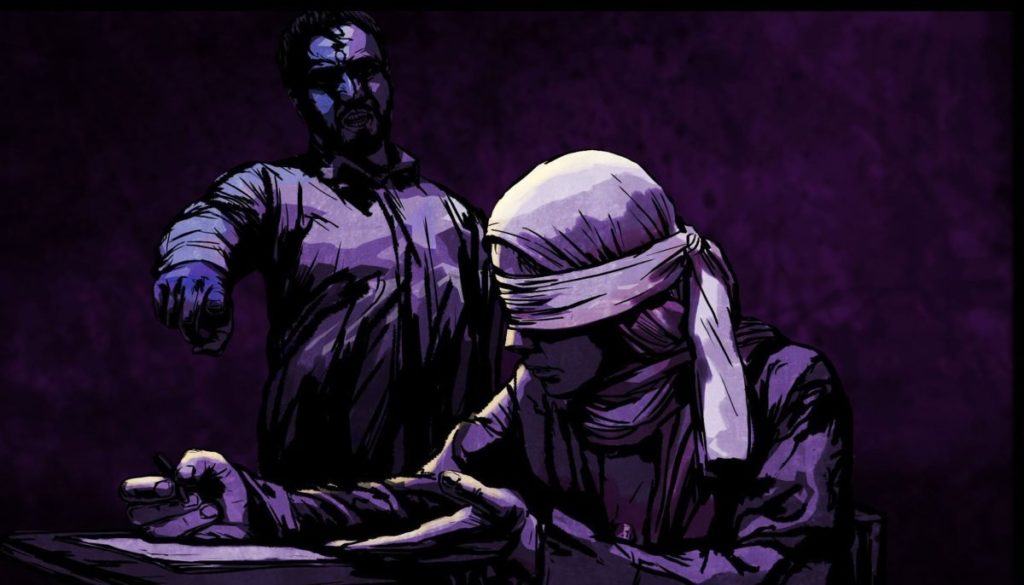UPDATES
Iran’s war on human rights
January 11, 2013 | Sharyn Mittelman

Following the Iranian regime’s violent crackdown on Iranians who protested the June 2009 election result, Iran’s repression continued against anyone deemed to be a supporter of the ‘velvet revolution’ – who were seen as working to undermine the Islamic republic. As a result, citizens who dare to speak out against Iran’s violation of human rights including lawyers, journalists, bloggers have been arrested and often tortured. While this issue has mostly faded from global attention, the death while in custody of a 35-year-old Iranian activist blogger Sattar Beheshti in November 2012 has put this issue back in the headlines.
Beheshti used his blog to speak out against human rights violations in Iran. According to the Guardian:
“Iran’s cyber-police force, known as Fata, which is assigned to track down online crimes (and dissidents), initially resorted to issuing threats to make him reconsider his online activities. When it failed to silence Beheshti, it sent some of its members to pick him up from his home on accusations that he was acting against the national security on Facebook. One week later his family received a phone call to collect his dead body.”
Unfortunately, this story is not unique. A September 2012 report to the UN General Assembly by the UN Special Rapporteur on human rights in Iran, Ahmed Shaheed, documented human rights abuses in Iran including the arrest and toture of human rights defenders:
“In two dozen interviews with the Special Rapporteur, human rights defenders reported being arrested and held incommunicado in solitary confinement for periods ranging from several weeks to 36 months, without charge or access to legal counsel. Most of them also reported that they were subjected to severe physical torture during interrogations, which were aimed at coercing confessions or soliciting information about other human rights defenders and human rights organizations. Methods employed reportedly included severe beatings with batons and other objects, mock hangings, electrocution, and actual rape. Other forms of psychological torture allegedly included sleep deprivation, denial of food and/or water, and threats of arrest, detention, rape or murder of family members. Several victims also reported being drugged with hallucinogens.”
Human Rights Watch (HRW) also released a report in December 2012 on this issue entitled “Why They Left: Stories of Iranian Activists in Exile” which documents the experiences of activists, journalists, bloggers and human rights lawyers who claim they were targeted by security and intelligence forces because they criticised the Iranian regime. The report claims that the effects of 2009 crackdown are still being felt today in Iran. Joe Stork, HRW’s deputy Middle East Director, said:
“The images of police beating protesters mercilessly may have faded from television and computer screens, but many Iranian activists continue to make the painful choice to abandon homes and families”.
The report documents the stories of activists including Nasrin Sotoudeh, who prior to be imprisoned worked as a lawyer defending high-profile human rights activists and journalists, including the Iranian Nobel laureate Shirin Ebadi. Sotoudeh, along with another Iranian dissident, filmmaker Jafar Panahi (who is also being held in Iran’s custody), received the European Parliament’s 2012 Sakharov Prize for Freedom of Thought in absentia. Panahi is an Iranian film director and screenwriter who was charged with using his works to promote propaganda against the Iranian government. In December 2010, he was sentenced to six years in prison and received a 20-year ban on making or directing any movies, writing screenplays, participating in any kind of media interviews as well as leaving the country. He is currently living under house arrest.
The repressive policies of the Iranian regime against women, gays and minorities appear to be intensifying of late. For example, in August Iran announced that 77 courses at 36 universities will now be ‘single gender’ and exclude women. Members of the Bahai faith have also been under attack, as the Bahai faith is banned in Iran.
While Jews are allowed to practice Judaism in Iran (while still being discriminated under Iranian law), the Jewish community is also concerned following the recent murder of two Jewish Iranians. According to Israel’s Channel 2, a woman accused of being involved in the murder of a Jewish man, Daniel Magrufta, in Iran reportedly had charges against her dropped after investigators said that “if you were involved in killing a Jew, you did a good deed”. The Jewish community believes the woman, who Magrufta was dating, and who is the daughter of a member of the Iranian Revolutionary Guards, was involved in his death.
The murder came one month after a Jewish woman was murdered by Muslim extremists intent on demolishing her house to make room for the expansion of a mosque. According to Arutz Sheva:
“the woman’s family said that a mosque has been under construction near the home. Its worshipers demanded that the family vacate their house in order to expand the mosque building. The owner denied and thugs later came to the home, tied up the woman’s two sisters who were living there as well, and stabbed the owner to death.”
In 2011, Iran executed an Israeli-born Jewish woman and her Armenian Christian husband. The current Iranian government census reports that there are 8,756 Jews in Iran, down from 25,000 Jews in 2009.
Sharyn Mittelman
Tags: Iran





